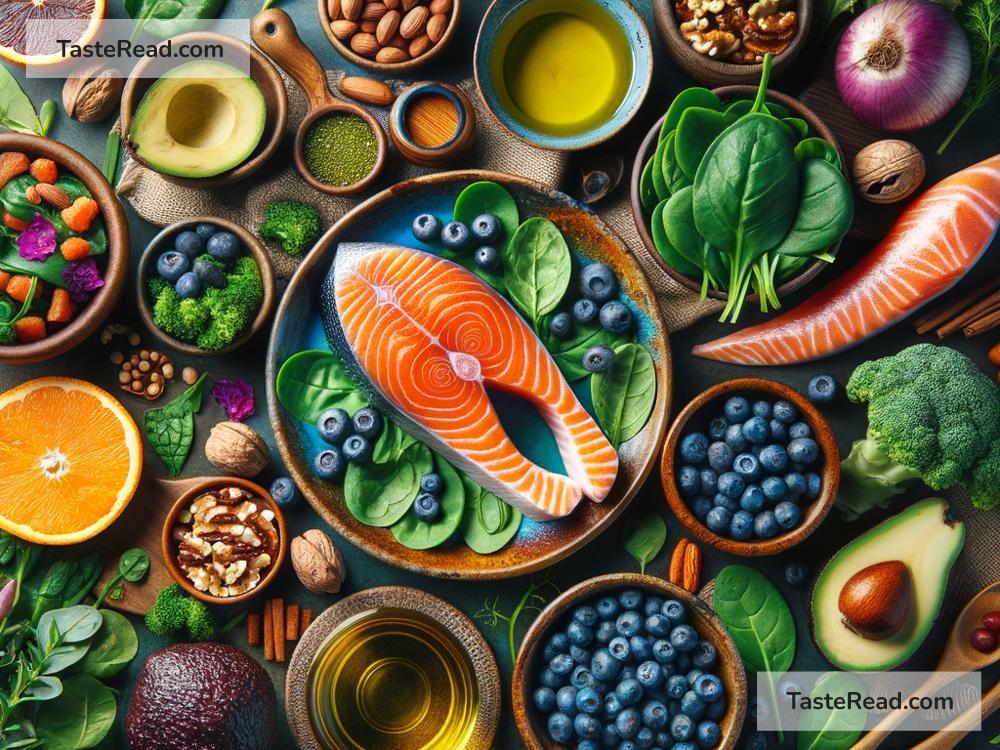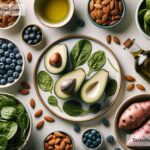Managing Psoriasis with the Right Foods: A Guide to Feeling Better Naturally
Psoriasis is a chronic skin condition that causes the skin to become red, itchy, and scaly. It’s an autoimmune disorder, which means the body’s immune system mistakenly attacks healthy skin cells. While there’s no cure for psoriasis, there are ways to manage symptoms and reduce flare-ups—and one powerful tool to help is proper nutrition. Your diet plays a big role in calming inflammation, boosting your immune system, and improving your overall health. In this article, we’ll explore the best foods and helpful habits to support psoriasis management.
The Link Between Diet and Psoriasis
Psoriasis is heavily influenced by inflammation. Many foods can either fight inflammation or make it worse, so smart food choices are key to managing symptoms. Studies show that certain diets—like the Mediterranean diet—are especially helpful for people with psoriasis. Packed with anti-inflammatory nutrients, these diets focus on fruits, vegetables, whole grains, lean proteins, and healthy fats.
Let’s take a closer look at the foods that can help soothe your skin and keep your body thriving.
Best Foods for Psoriasis Management
1. Fruits and Vegetables
Fruits and vegetables are your best friends for managing psoriasis. They’re loaded with antioxidants, which fight inflammation and protect your skin from damage.
- Leafy Greens: Spinach, kale, and broccoli are rich in vitamins like A, C, and K, which are essential for skin health.
- Brightly Colored Veggies: Carrots, sweet potatoes, and red peppers contain beta-carotene, a compound that helps your skin heal and stay healthy.
- Berries: Blueberries, strawberries, and raspberries are packed with antioxidants that reduce inflammation and support your immune system.
Try to eat a variety of fruits and veggies every day to get a wide range of nutrients. Aim for half your plate at every meal to be filled with plant-based goodness.
2. Omega-3 Rich Foods
Omega-3 fatty acids are powerful anti-inflammatory nutrients that can help calm psoriasis symptoms. They’re often found in fatty fish and certain plant-based foods.
- Fish: Salmon, mackerel, tuna, and sardines are rich in omega-3s and protein, making them excellent choices for skin health.
- Flaxseeds and Chia Seeds: These tiny seeds are packed with plant-based omega-3s and make a great addition to smoothies, oatmeal, and salads.
- Walnuts: Another good vegan source of omega-3s, walnuts are perfect as a snack or mixed into meals.
If you’re not a fan of fish, you can consider taking a high-quality omega-3 supplement, but always consult your doctor first.
3. Whole Grains
Whole grains like oats, quinoa, and brown rice provide energy without triggering inflammation the way refined grains (like white bread and pastries) might. They’re rich in fiber, which helps improve digestion and balances out your inflammation levels.
Whole grains also keep you fuller for longer, preventing overeating and weight gain. Maintaining a healthy weight is important because obesity can make psoriasis worse by increasing inflammation in the body.
4. Healthy Fats
Not all fats are bad! Healthy fats, like those found in olive oil, avocados, and nuts, are beneficial for psoriasis management. These fats help reduce inflammation and support skin repair.
- Extra Virgin Olive Oil: Replace butter or margarine with olive oil when cooking or drizzling over salads for added health benefits.
- Avocados: Rich in vitamins E and healthy fats, avocados are great for your overall skin health.
- Nuts and Seeds: Almonds, sunflower seeds, and others provide a satisfying crunch and nutrients your body needs.
5. Spices and Herbs
Certain spices and herbs have anti-inflammatory properties that can help calm psoriasis flare-ups.
- Turmeric: This bright yellow spice contains curcumin, a compound known for its powerful anti-inflammatory effects.
- Ginger: Often used for digestive issues, ginger also helps reduce inflammation throughout the body.
- Parsley and Cilantro: Fresh herbs are rich in antioxidants and add flavor without relying on salt.
Adding these spices and herbs to your meals is an easy way to boost your diet with healing nutrients.
Foods to Avoid
While there are many foods that help psoriasis, there are others that can make it worse. Try to limit or avoid these whenever possible:
- Processed Foods: Junk food, snacks, and sugary treats can increase inflammation and trigger flare-ups.
- Red Meat: Opt for lean protein sources like chicken, fish, or plant-based proteins instead.
- Dairy Products: Some people with psoriasis find that milk and cheese worsen their symptoms, so consider trying alternatives like almond or oat milk.
- Alcohol: Drinking alcohol can make psoriasis worse, so it’s best to keep it to a minimum.
Hydration Matters
Don’t forget to stay hydrated! Drinking plenty of water keeps your body and skin healthy. Herbal teas and infused water with cucumber or lemon are great options for staying hydrated while adding extra flavor.
Conclusion: The Path to Better Skin
Managing psoriasis can feel overwhelming, but small, consistent changes can make a big difference. Focus on filling your plate with nutrient-rich foods that fight inflammation, and avoid processed and trigger foods as much as possible. Everyone is unique, so it’s important to pay attention to how your body reacts to certain foods. Over time, you’ll find what works best for you.
Remember: A healthy diet is just one piece of the puzzle. Combine it with regular exercise, stress reduction, and medications prescribed by your doctor for a well-rounded approach to managing psoriasis. By nourishing your body with the right foods, you’re taking one big step closer to healthier skin and happier days!


